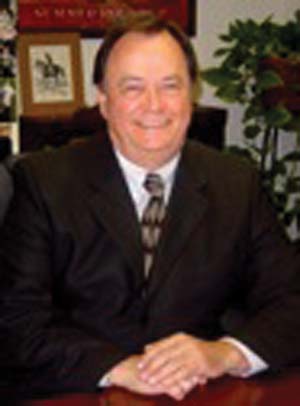San Benito County’s Economic Development Corp. gathered business
and political leaders to San Juan Oaks Golf Club recently to
discuss local efforts to try and create additional business
opportunities in the county. A guest speaker from the state EDC
laid out the organiation’s purpose and contended the local office
is under-funded, while $125,000 in tax funds go to the organization
annually.
San Benito County’s Economic Development Corp. gathered business and political leaders to San Juan Oaks Golf Club recently to discuss local efforts to try and create additional business opportunities in the county. A guest speaker from the state EDC laid out the organiation’s purpose and contended the local office is under-funded, while $125,000 in tax funds go to the organization annually.
A precursor to the EDC board’s “retreat,” the two-hour luncheon Feb. 25 introduced the 30-member audience to California Association for Local Economic Development President Wayne Schell. The slide-show presentation aimed at simplifying the activities of local EDCs and the ultimate goals of the groups.
The presentation was strictly informal and an outline on what economic development is, and how it works.
“When we talk about economic development – it is the what, who, why, where are we going with this and there is not a better person in the world to talk about this than Wayne Schell,” San Benito County EDC President Nancy Martin said at the event.
Schell’s message was business first. He believed the most important thing wasn’t job creation, but making a profit. With more profits, more jobs would eventually come, he said.
With a slide that read, “Profit!” Schell said that it is the most important thing for each business to worry about.
“Businesses have to make a profit to create jobs,” he said. “A profit comes first.”
To credit a profit, and eventually more jobs, Schell called out local governments.
Local government officials need to offer reasons for businesses to come to the community, he said.
“We’ve made it difficult to do business in California,” he said. “We’ve put a lot of obstacles in our path to get things done. We need to untangle some of those processes.”
By creating incentives, including tax breaks, business can flourish.
Schell contended it wasn’t the EDC’s responsibility to bring in jobs, but to create an atmosphere where businesses can succeed.
“Economic development is pretty simply the creation of wealth where a county benefit is created,” he said.
Calling the EDC a facilitator, Schell said it’s not the EDC’s responsibility to create the jobs in a community but to give the businesses the best opportunity to create the resources.
But mostly, Schell called for an “investment in yourself” from the county.
Mentioning that the local EDC is one of the lowest funded branches in California, Schell said more resources should be poured into the organization. He added that the community should work with the EDC “day in and day out.”
“You have a very important opportunity,” Schell said pointing to Martin. “She is exceptional. It’s not often people have access to people with the experience and knowledge that she has.”
His message came despite $75,000 allocated from the city and another $50,000 from the county. The remainder of the EDC’s budget is driven by membership and fundraising. As a comparison, Gilroy’s EDC now has a city-allotted $96,000 budget.
Highlighted by a three-prong approach, Schell said the community should focus on the existing jobs, start up assistance and attracting new businesses.
“Community development has a capability of building process to make a community a better place to live and work,” Schell said.










